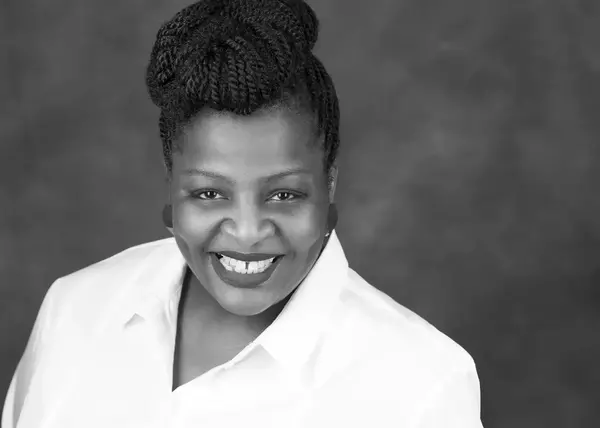
Different lenses to Coaching Practice - The person centred and solutions focussed approaches
i-coach Academy established a recognised standard of excellence in academic and practice-based coaching when it was founded twenty years ago.
Our research on effective coaching and the stages of coach development underpins our philosophy. They are embedded in the way we think about coaching and our approach.
We believe that isn't a single way to coach. We believe that who a person is: their values, beliefs, education, experience, strengths, inform their approach to coaching.
In 2001, i-coach developed the Coaching Framework which, when embedded, supports coaches experiment, evolve and synthesise their unique practice.
Our learning philosophy sets i-coach apart. Our focus is on creating an environment in which individuals can explore their own wisdom and unlock their own potential.
For us, learning (and coaching) is an empowering process one that benefits from experimentation and self-discovery.
For that reason we don’t follow a single model. Nor do we advocate one approach above another. We constantly expose students to different facilitators, perspectives, approaches, methodologies and practices which align with the i-coach values. We challenge students to embrace paradox to strengthen their approach.
Ola Lagunju and Shaun Lincoln are faculty members on the Foundation in Coaching Practice course. Their job is to offer interactive sessions which reflect a theoretical perspective core to their own coaching and an associated process model for students to practice with so they can truly ‘try on’ the approach before analysing the experience and decide what to integrate in to their own approach. In this blog post, the pair discuss the person centred and solutions focussed approaches, both of which feature in the Foundation in Coaching Practice course.

Ola: In every question, interaction and silence the person is at the centre. Imagine entering a space where you know that judgement has been turned down to zero, where there is space for exploration, curiosity and play. This is often a brand new experience for people but it’s central to the i-coach approach.
The reason I resonate so much with the person-centred approach in the i-coach offer is that it’s an incredibly human way to coach. It helps to establish and foster a sense of unconditional positive regard between two people.
The client understands that they don’t need to say the ‘right’ thing or do anything to impress the coach. The coach meets them where they are and accepts them as they are. I think a coach who draws effectively on the person centred approach is able to be authentically themselves. This lets the client know it’s safe to do the same. It’s incredibly freeing on both sides.

Shaun: For me, it’s not that the two approaches are similar or different, they are complementary. That’s what is so unique about i-coach, it really encourages multiple perspectives so that people feel supported to find their own way forward.
Having said that, in a way, I think the person centred approach paves the way for a solutions focussed approach - which is handy as my module follows yours in the Foundation in Coaching Practice course! The person-centred module supports individuals to be fully present, fully themselves, fully human.
What a solutions focussed approach then says is, ‘Great, bring that understanding to focus on what you want to achieve and where you want to be.’ The coach then sits next to the client and explores where this is already happening in their lives, where it has happened, and to look for more instances of where it could happen.
I think that both approaches recognise that the individual has all the answers inside them, not the coach. This is an idea that some leaders can struggle with. So much of both approaches is about unlearning things, particularly the idea that the individual has to be the expert. What an individual needs is that steady support during this unlearning and re-learning which is what i-coach is so good at doing.
Ola: If we use a garden metaphor, I think the person-centred approach clears the weedy and knotty land. It clears the way for people to do that independent thinking. I agree with you, Shaun. The two approaches work together.
Shaun: And if I can build on that garden idea - I’m reminded of a quote I heard about coaching that was for me, quite difficult to get to grips with initially, it is: ‘The coach should leave no footprints behind.’ When I heard it, I asked myself, how is that possible? The garden metaphor actually helps to answer that question. It’s about letting the client walk around in the garden, while the coach carefully observes what is happening and when it is required, prompts questions in a very non-directive way.
Their role is to help the client notice what they want to grow, where things are starting to grow and, indeed, if more garden lies undiscovered.
Ola: I think authenticity is key in both approaches. Whether it’s coaching development or individual coaching, i-coach places strong emphasis on being who you are, bringing your whole self to the work.
Shaun: Definitely. I think one of the misconceptions of a solutions focussed approach is that people think this means being positive and therefore inauthentic, particularly if the context in which they find themselves isn’t particularly cheery or positive.
A solutions focussed approach is about identifying the outcome and finding ways to move towards it. I think that this process makes people feel more positive, more hopeful and when they notice their progress, they realise that things are either better or, at the very least, things have stopped getting worse.
One of the things that is quite distinctive about this approach and one of the reasons why it appeals to leaders and coaches, is that it’s almost completely future focussed. Because importance is placed on the distance travelled, it generates the motivation needed to keep making small steps towards where the client wants to go. Do you think a person-centred approach focuses on the future, present or past?
Ola: It’s an interesting question. The model that I tend to draw on in my approach is the Nancy Kline model which begins by asking people what they want to say about a particular subject. What I find is that they tend to talk about the past or their current reality, it’s less about the future at that point. I think that by clearing all that out, it’s possible for a client to reach a place where it’s possible to see the future.
As you know, the Nancy Kline model is a six-part thinking structure. The second step asks the question, ‘what more do you want to achieve?’ so there is certainly a future piece in there.
Shaun: I think the subject of the future is something we, humanity, need to address in general, it’s perhaps not something we dare to do after the year we’ve all been through.
Ola: The coaching you're currently involved in and at this moment in world history must make this really clear.
Shaun: Yes. I’m working with an organisation of care home providers. The care sector isn’t something I’ve ever been involved in. Initially I was brought in for leadership coaching. I can see and most importantly they can see the impact and benefits to be had through adopting a coaching approach which is inspiring change in other parts of the organisation. Not just to the staff, but to the residents as well. It was really stretching.
In fact, there’s a great book on the solutions focused approach: The Next Generation of Solution Focused Practice by Mark McKergow. He talks about stretching the client’s world. This is certainly part of the solutions focussed approach. When we stretch the world to the future, the past, we stretch it around the present. When you stretch something, it might snap back, it might remain stretched, but what you do know is that it’ll be easier to stretch next time. This is something else we like to do on the Foundation in Coaching Practice Course: read around a topic, explore it in more depth. Learning really is a partnership and a journey.
Ola: That idea of stretch is seen in the person centred approach too. I remember working with a client a while ago. I started the session by suggesting we spend a couple of hours on a particular subject. My role as coach was to set up the environment and time to think. My client sat in quiet contemplation for 90 minutes and then responded in quite an emotional way. It was the first time where she felt she had the space to think and the support to do so. I think modern life has made it very hard for us to think about ourselves and for ourselves.
The care home work you're doing really crystallised the idea that there are great gifts within us which will allow us to prepare for whatever comes next.
Shaun: Absolutely. Whatever approach you take, coaching is the healing balm, the i-coach approach is really special. It helps people work out who they are and what they are capable of. We need this now more than ever.
The Foundation in Coaching Practice course is accredited at EMCC EQA Practitioner.
If you’d like to learn more about how i-coach can support internal coaching in your organisation, visit our website to learn more about the Foundation in Coaching Practice course or get in touch. We’d love to hear from you.



